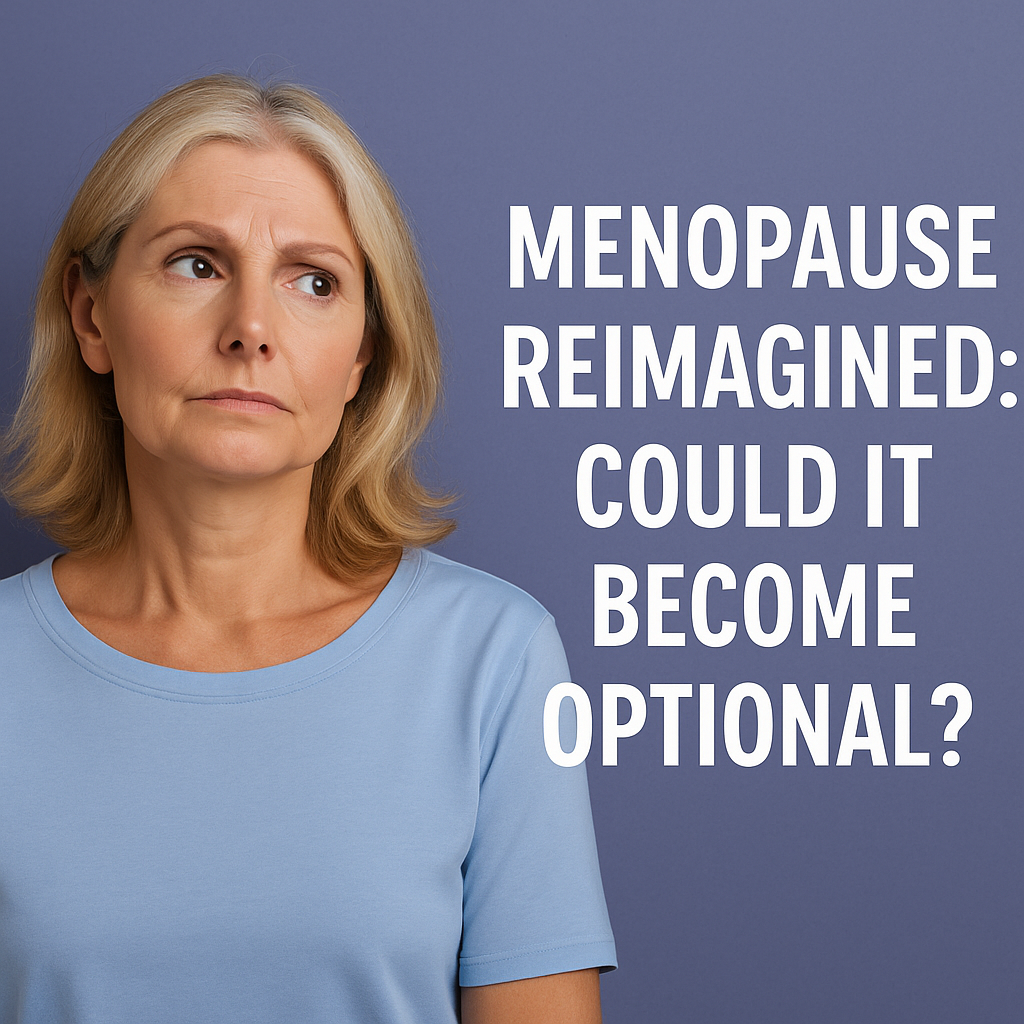Menopause has long been viewed as an inevitable milestone in a woman’s life—a biological curtain call for natural fertility. Characterised by the permanent cessation of menstruation and a decline in estrogen levels, it comes with a suite of symptoms: hot flashes, mood changes, bone loss, and increased cardiovascular risks. But what if this life-altering transition could be delayed—or even bypassed altogether?
In a world where ageing is increasingly seen as a modifiable process, scientists and bioethicists are now asking a provocative question: Could menopause become optional?
The Science Behind Menopause: A Brief Overview
Menopause typically occurs between the ages of 45 and 55 and is defined retrospectively after 12 consecutive months without a menstrual period. Biologically, it results from the depletion of ovarian follicles and the decline of sex hormones like estrogen and progesterone. This hormonal shift increases the risk of conditions such as:
-
Osteoporosis
-
Cardiovascular disease
-
Cognitive decline
-
Genitourinary syndrome of menopause (GSM)
Menopause is a natural process, but the question now is whether it needs to be inevitable.
Scientific Advances: Delaying or Eliminating Menopause
1. Ovarian Tissue Cryopreservation and Reimplantation
Originally designed for fertility preservation in cancer patients, this technique involves freezing ovarian tissue before menopause and reimplanting it later in life to restore hormonal function and potentially reverse menopause.
-
In 2019, the UK-based company ProFam announced success in reimplanting ovarian tissue to delay menopause by up to 20 years.
-
A 10-year longitudinal follow-up study supports that this method as viable for long-term endocrine function restoration.
2. Stem Cell Therapy
Emerging research shows that stem cells may regenerate aging ovarian tissue.
-
A study published in Stem Cells Research & Therapy showed that mesenchymal stem cells improved ovarian function in animal models.
3. Gene Editing and Anti-Ageing Interventions
Genetic interventions targeting aging pathways—such as telomerase activation, mTOR inhibitors, and senolytics—may theoretically preserve ovarian function longer.
-
The Hallmarks of Ageing framework by López-Otín et al. (2013) guides much of this research.
4. Artificial Ovary and Bioengineering
Bioengineered ovaries are being explored as hormone-replacement systems that are biologically attuned to the body.
-
The concept of an “artificial ovary” was demonstrated in mice using a 3d printed scaffold seeded with follicles.
Ethical Considerations: Should Menopause Be Optional?
1. Medicalisation of a Natural Process
Is it ethically justified to treat menopause as a condition to be prevented? Some argue that this path risks reinforcing ageism and the stigma around female ageing.
2. Equity and Access
Advanced reproductive technologies are expensive. If menopause prevention becomes possible, will it be accessible only to the wealthy, thereby widening health disparities?
3. Reproductive Autonomy vs. Societal Pressure
Could societal expectations push women to delay menopause against their will, to remain fertile or “youthful”?
4. Long-Term Risks Unknown
Altering the body’s natural hormonal decline may carry unintended consequences, such as increased cancer risks, that are not yet fully understood.
What the Future Holds
With life expectancy increasing, women today may spend over a third of their lives in postmenopause. Scientific curiosity, coupled with the desire to enhance quality of life, makes delaying menopause alluring.
But just because we can intervene, does it mean we should? The conversation around optional menopause brings us to the intersection of reproductive science, ethics, and social values.
Conclusion
The dream of bypassing menopause is no longer confined to science fiction. Ovarian tissue cryopreservation, stem cell therapy, gene editing, and bioengineering are all paving the way for a future where menopause might be postponed—or even skipped. While the promise is exciting, it must be tempered with thoughtful ethical analysis and careful long-term study.
Whether or not menopause becomes optional, the real challenge lies in giving women informed choices, not just scientific options.
References
- Kim SS. Assessment of long term endocrine function after transplantation of frozen-thawed human ovarian tissue to the heterotopic site: 10 year longitudinal follow-up study. J Assist Reprod Genet. 2012 Jun;29(6):489-93. Pubmed
- Li, J., Fan, H., Liu, W. et al. Mesenchymal stem cells promote ovarian reconstruction in mice. Stem Cell Res Ther 15, 115 (2024). Biomedcentral
- López-Otín, C., et al. (2013). “The hallmarks of aging.” Cell, 153(6), 1194–1217. PubMed
- Laronda, M. M., et al. (2017). “A bioprosthetic ovary created using 3D printed microporous scaffolds restores ovarian function in sterilized mice.” Nature Communications, 8, 15261. Nature
- The Guardian. (2019). “New medical procedure could delay menopause by 20 years“.

Akanksha Sharma
Dr. Akanksha Sharma, Head Writer and creator of AtoZ of Pregnancy, is dedicated to empowering women, parents, and families through 360-degree knowledge. She and her team provide evidence-based advice to guide families through pregnancy, parenting and beyond.






